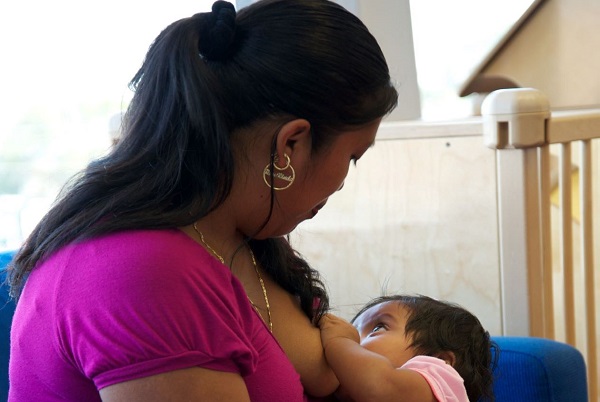Breastfeeding and Infant Nutrition
Infant feeding practices vary for each family. These resources help Head Start staff promote evidence-based feeding practices for infants and support families in nourishing their babies with human milk or formula.
 Breast feeding has many known health benefits for infants and parents.
Breast feeding has many known health benefits for infants and parents.
These resources can help you support families in making decisions about infant nutrition.
Infant feeding practices vary for each family. These resources help Head Start staff promote evidence-based feeding practices for infants and support families in nourishing their babies with human milk or formula.
This resource will help Head Start and early care and education managers and staff ensure policies, training, and best practices to create a program that welcomes breastfeeding.
In this fact sheet, find easy tips families may use to help their children learn about nutrition and healthy eating behaviors starting in infancy.
Read the standards for designing and providing nutrition services that meet needs of each child, as well as funding sources for implementation.
A woman’s lifestyle may affect her breast milk, and have an impact on the baby. During breastfeeding, it is important for a woman not to consume alcohol, smoke, or take drugs. These substances are known to pass through the breast milk. This information can help mothers to understand better about the consequences of smoking, using drugs, and drinking alcohol during pregnancy.